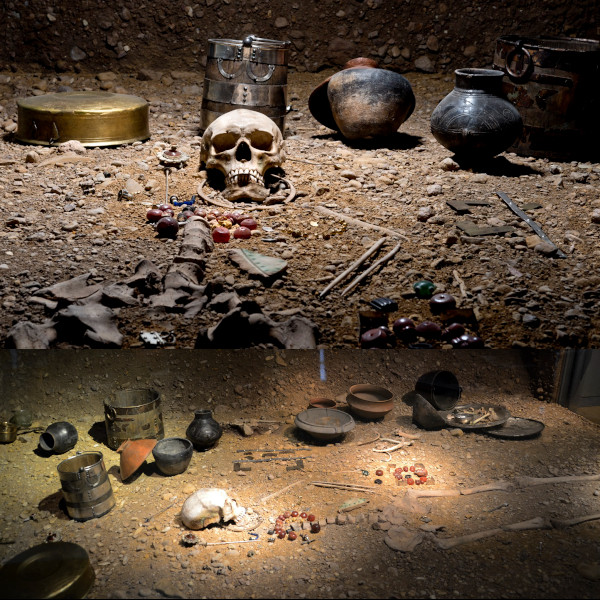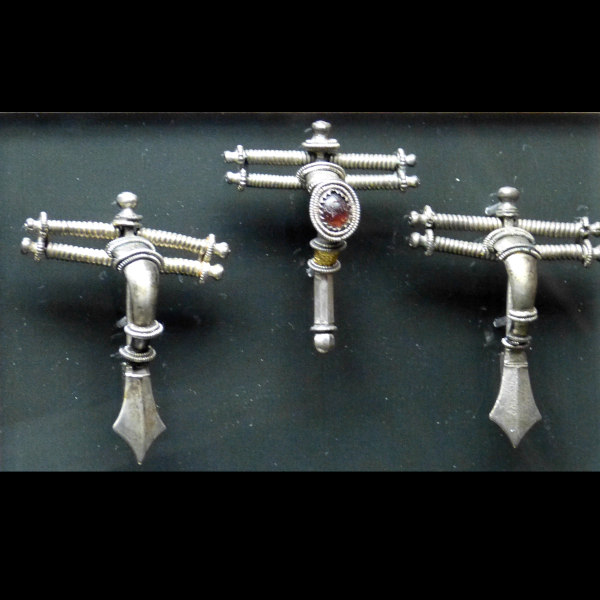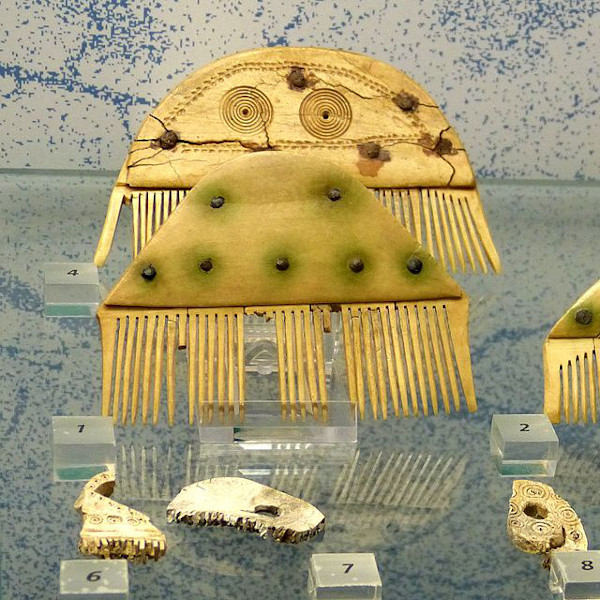DNA spotlight
Thuringian Princess of Hassleben

An ancient cemetery was discovered in Hassleben Thuringia which remained the richest ancient grave found in Germany for almost a hundred years. Not only was the oldest written Germanic word ever discovered etched onto a comb, but hundreds of Roman coins, ceramic fragments and Roman-style brooches were also discovered. This is no accident as much of our knowledge regarding Thuringia and broader Germania comes from the Roman historian Tacitus. The Elbe Germanic tribes who moved into this region were allies of the Romans who were trading partners, a buffer to the neighbouring Chatti - sworn enemies of Rome, as well as specialised in metalworking of iron and precious metals.

Here you can see the richly outfitted grave of the Princess of Hassleben which demonstrates the influential noble class who had a very close relationship with the Romans. She was a young woman buried with a choker, golden fibulae, a ring, a collier of roman glass beads, roman coins, pottery plates and vessels. In her mouth was a Roman gold coin - known as Charons obol - which would provide payment to Charon the ferryman to allow her soul to reach the world of the dead. Next to her remains lay the skeleton of a small dog - possibly her personal pet.

The grave evidences thriving trade and how Germanic tribes such as the Thuringia began adopting Roman traditions. The ornate fibulae shown here were used for fastening garments, typically on the right shoulders - this was very common in Ancient Rome. A second elite grave was discovered to the south of the Princess. It contained gold jewelry and crockery made of gold and silver. Nearby were golden finger rings, elaborate pendants and the combs shown here. It is assumed these goods were crafted by specialists in the courts of the old Thuringia nobles.

Shown here are some of the ornate three-layer combs crafted from bone which were found at Hassleben. There are many parallels between the graves at Hassleben with those at other sites such as Leuna, Straze, Sakrau, Sanderumgard and Himlingoje - as a result these have been combined into a cultural classification known as the Hassleben-Leuna group. If you share a match with either of these elite burials you are in luck - the princess grave and other findings are part of the permanent exhibition of the Museum for Prehistory and Early History of Thuringia which you can visit today.
Sample: Thuringian Princess Hassleben Germany
- Sample ID: R11877
- Year: 450 AD
- Sex: Female
- Location: 51.109,10.9956
Sample: Elite Female Grave Hassleben Thuringia Germany
- Sample ID: R11867
- Year: 450 AD
- Sex: Female
- Location: 51.109,10.9956
